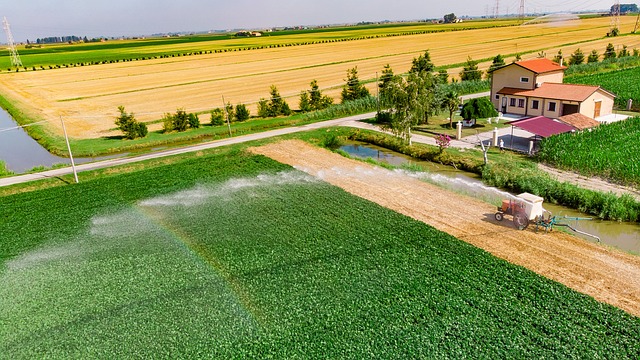Crop Water Requirements: Understanding the Key to Successful Irrigation
Water is a fundamental resource for plant growth and plays a vital role in agricultural productivity. Understanding the water needs of crops, known as crop water requirements, is essential for effective irrigation and sustainable farming practices.
Crop water requirements refer to the amount of water needed by crops at different growth stages to achieve optimal development and yield. These requirements vary depending on factors such as crop type, stage of growth, climate conditions, soil characteristics, and management practices.
Properly assessing and meeting crop water requirements is crucial for several reasons. Firstly, providing crops with adequate water ensures their physiological processes, including photosynthesis, nutrient uptake, and transpiration, occur optimally. Insufficient water can lead to stunted growth, reduced yield, and even crop failure.

On the other hand, excessive water can result in waterlogging, nutrient leaching, and increased susceptibility to diseases. It can also lead to wastage of a precious resource and unnecessary costs for farmers.
Determining crop water requirements involves considering various factors. Evapotranspiration (ET) is a key parameter in estimating crop water needs. It is the combined process of water loss through evaporation from the soil surface and transpiration from plants. ET is influenced by temperature, humidity, wind speed, solar radiation, and crop characteristics.
Crop coefficients (Kc) are another essential component in calculating crop water requirements. Kc values represent the water requirements of specific crops at different growth stages relative to reference evapotranspiration (ET0). By multiplying ET0 by the crop coefficient, farmers can estimate the crop’s daily water needs.
Accurate measurement and estimation of crop water requirements enable farmers to make informed decisions about irrigation scheduling, water allocation, and conservation practices. It helps optimize water use efficiency, reduce water waste, and promote sustainable irrigation management.
Moreover, advancements in technology have facilitated precision irrigation systems and soil moisture sensors that provide real-time data on soil moisture levels. This enables farmers to apply water precisely when and where it is needed, further enhancing water-use efficiency and minimizing environmental impacts.
Understanding and meeting crop water requirements are essential steps towards achieving sustainable and productive agriculture. By efficiently managing irrigation practices and ensuring crops receive the right amount of water at the right time, farmers can maximize yields, conserve water resources, and contribute to a more sustainable future.
